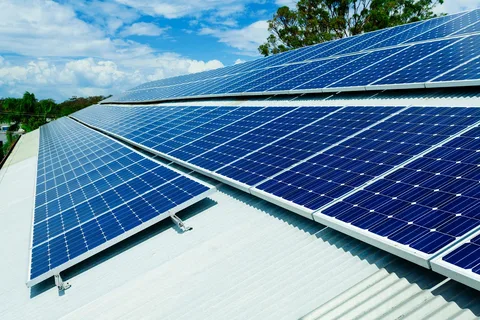
In recent years, Pakistan has been witnessing a remarkable shift towards renewable energy sources, particularly solar power. With the growing concern for sustainability and the need to combat energy crises, Hybrid solar system in Pakistan have emerged as a viable solution. In this article, we delve into the realm of solar energy and explore the burgeoning trend of hybrid solar systems in Pakistan.
Understanding Hybrid Solar Systems
Hybrid solar systems integrate solar panels with other sources of electricity generation, such as diesel generators or grid power. This combination offers several advantages over traditional solar setups, including increased reliability, efficiency, and cost-effectiveness. In Pakistan, where power outages are prevalent, hybrid systems ensure uninterrupted electricity supply by seamlessly switching between solar and alternate sources.
Key Components of Hybrid Solar Systems
- Solar Panels: Convert sunlight into electricity.
- Battery Storage: Store excess energy generated during the day for use at night or during cloudy days.
- Inverter/Converter: Converts DC electricity generated by solar panels into AC electricity for household use.
- Backup Generator/Grid Connection: Provides additional power when solar energy is insufficient.
The Advantages of Hybrid Solar Systems
- Reliable Power Supply
Pakistan faces frequent power outages, disrupting daily life and economic activities. Hybrid solar systems offer a reliable alternative by providing uninterrupted electricity, even during grid failures.
- Cost Savings
While the initial investment in hybrid solar systems may be higher than traditional setups, the long-term savings are substantial. Reduced reliance on grid electricity and diesel generators leads to lower utility bills and operational costs.
- Environmental Sustainability
By harnessing solar energy, hybrid systems significantly reduce carbon emissions and dependence on fossil fuels. This aligns with Pakistan’s commitment to mitigating climate change and promoting sustainable development.
Implementation of Hybrid Solar Systems in Pakistan
Government Initiatives
The Pakistani government has introduced various incentives and policies to encourage the adoption of renewable energy technologies, including hybrid solar systems. Subsidies, tax breaks, and net metering schemes incentivize individuals and businesses to invest in solar energy.
Commercial Sector Adoption
Businesses in Pakistan are increasingly turning to hybrid solar systems to meet their energy needs while reducing operational expenses. Industries, hotels, and educational institutions are among the key adopters, leveraging solar power to enhance competitiveness and environmental stewardship.
Residential Installations
In urban and rural areas alike, homeowners are embracing hybrid solar systems as a reliable and sustainable energy solution. The ability to generate electricity independently empowers households and contributes to energy security at the community level.
Frequently Asked Questions (FAQs)
Q: Are hybrid solar systems suitable for all regions of Pakistan?
A: Yes, hybrid solar systems are adaptable to various geographic locations and climatic conditions across Pakistan. However, site-specific factors such as solar irradiance, available space, and electricity consumption patterns should be considered during system design.
Q: What maintenance is required for hybrid solar systems?
A: Hybrid solar systems require minimal maintenance compared to traditional power sources. Routine inspections of solar panels, batteries, and inverters are recommended to ensure optimal performance. Additionally, periodic cleaning of solar panels helps maximize energy output.
Q: Can hybrid solar systems operate off-grid?
A: Yes, hybrid solar systems can operate independently of the grid by relying solely on solar energy and battery storage. This off-grid capability is particularly beneficial in remote areas where access to traditional electricity infrastructure is limited.
Conclusion
As Pakistan Solar System strives towards a sustainable energy future, hybrid solar systems emerge as a beacon of hope. Combining the reliability of conventional power sources with the eco-friendliness of solar energy, these systems pave the way for a greener and more resilient Pakistan. With continued government support and growing public awareness, hybrid solar adoption is poised to soar, illuminating homes, businesses, and communities across the nation.